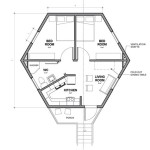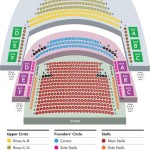Essential Aspects of New York City Floor Plans
New York City is a vibrant and dynamic metropolis known for its towering skyscrapers and a rich architectural tapestry. Understanding the city's floor plans is crucial for architects, real estate professionals, and anyone interested in the urban fabric of this iconic location.
Floor plans provide a detailed layout of a building's interior spaces, including walls, doors, windows, and other architectural elements. In New York City, floor plans play a significant role in optimizing space, maximizing natural light, and creating functional living environments.
Several essential aspects define New York City floor plans:
Size and Shape
New York City floor plans vary significantly in size and shape. Apartments range from cozy studios to spacious penthouses, while commercial buildings can occupy entire city blocks. The irregular street grid and historic building stock contribute to the city's diverse floor plan configurations.
Layout
The layout of a New York City floor plan is crucial for maximizing space and functionality. Common layouts include open floor plans, which combine multiple rooms into a single, expansive area, and closed floor plans, which separate rooms with walls and doors.
Natural Light
Natural light is a highly valued commodity in New York City, where buildings are often closely spaced. Floor plans that incorporate large windows and skylights take advantage of natural light, creating brighter and more inviting spaces.
Openness and Flow
New York City floor plans often emphasize openness and flow. Sliding doors, partition walls, and multi-level designs allow spaces to be easily reconfigured to accommodate changing needs and maximize flexibility.
Storage
Storage is a premium in New York City, where space is often limited. Floor plans typically include ample closet space, built-in storage units, and other clever solutions to optimize storage and maintain a clutter-free environment.
Building Codes and Regulations
New York City has strict building codes and regulations that govern floor plans. These regulations ensure the safety, habitability, and energy efficiency of buildings. Understanding these regulations is essential for architects and builders working in the city.
In conclusion, New York City floor plans are a testament to the city's ingenuity and adaptability. By carefully considering size, shape, layout, natural light, openness, storage, and building regulations, architects and designers create functional, inviting, and iconic spaces that contribute to the vibrant urban tapestry of the Big Apple.

On Line Residential Nyc S Source For Real Estate Listings

Where Floor Plans Are Sought After And Why The New York Times

Floor Plans Apartment New York Apartments

10 Elaborate Floor Plans From Pre World War I New York City Apartments Mental Floss
Typical Floor Plan Of The Bmore Nypl Digital Collections

A Luxury New York City Apartment From The Early Twentieth Century Garage Floor Plans Mansion Plan

Studio 1 2 3 Bedroom Apartments In Manhattan The Ashley
Ground Floor Plan Of New York Court House Nypl Digital Collections

Studio 1 2 3 Bedroom Apartments In Manhattan The Ashley

New York Townhouse Floor Plans Nyc Brownstone House








